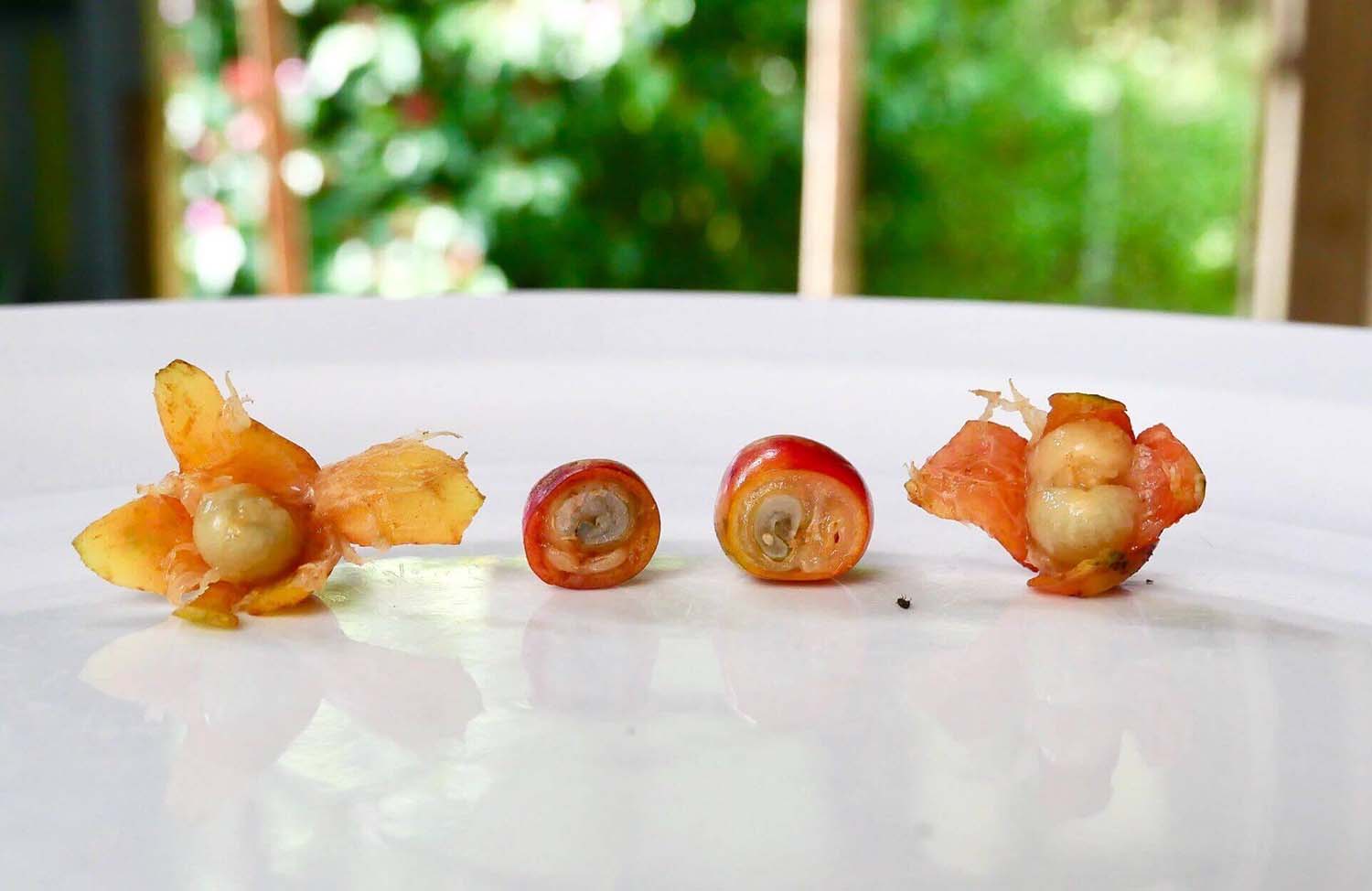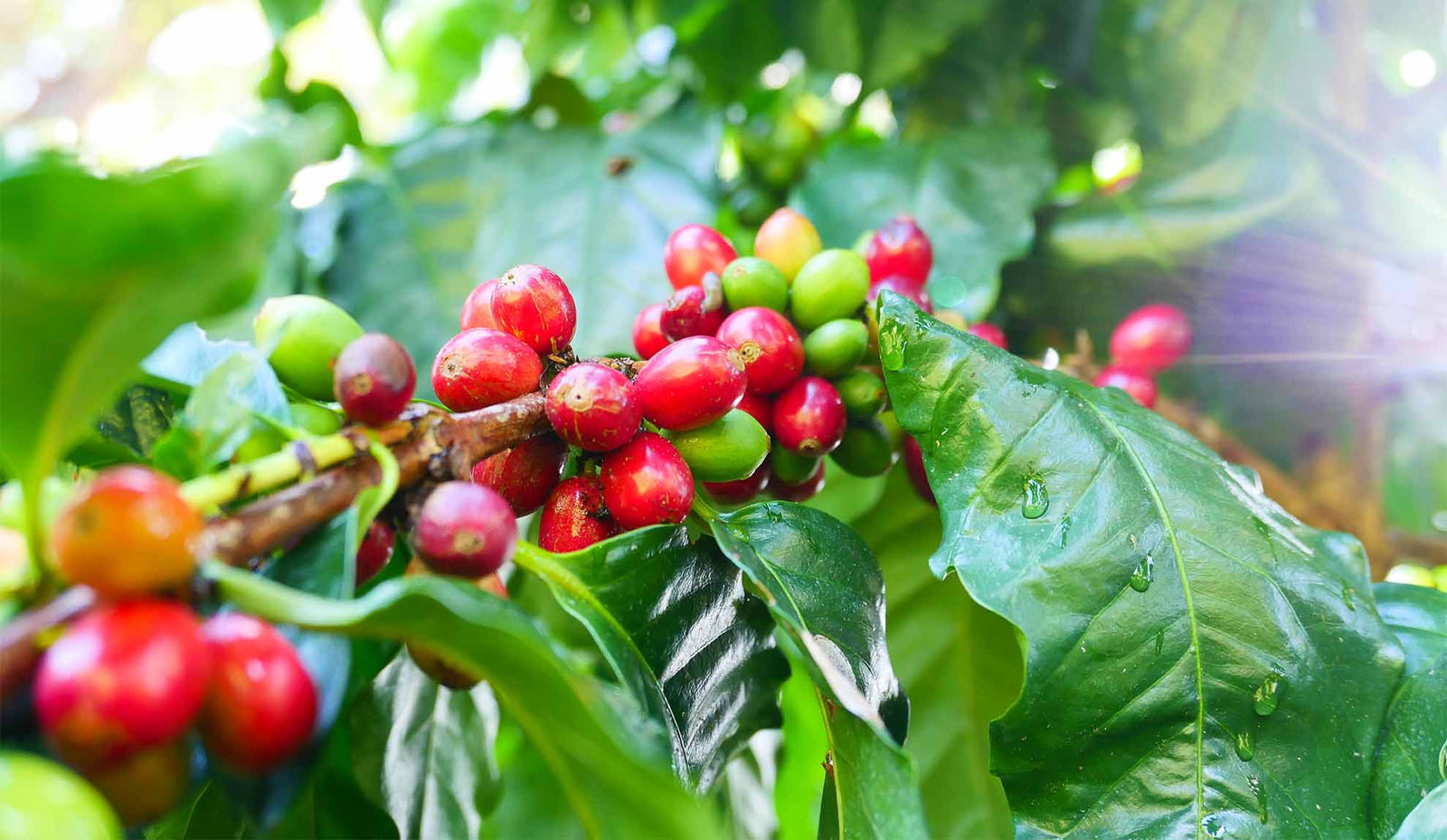We're so excited to debut a new line of exquisite Kona coffees through our partnership with an unprecedented farm: Kona Hills.
The debut begins with Kona Peaberry. At 94 points, this is one of the highest scoring traditional Kona coffees available. It's a top tier version of the classic Kona profile -- Kona coffee times 10.
This is just the beginning, and a snapshot into a massive farm with a dynamic story and unwavering vision. Over time you'll taste a range of specialty Kona coffees from Kona Hills, from traditional to exotic varieties, grown at different elevations and processed in a variety of ways. Quite literally, a rainbow of flavor and experiences, all hand-harvested in Kona.

BIG CHALLENGES REQUIRE BIG SOLUTIONS
Producing excellent coffee is straightforward when one understands the fundamentals of good coffee production and the farm is small enough that it can be carefully monitored. That could be anywhere from 50 to 5,000 pounds of green coffee.
But how does one scale quality coffee to 50,000 or even 500,000 pounds? Reliable equipment is crucial, but so is a reliable team - both in the field and in the office. It get's complicated.
Unlike the mechanically harvested coffees of Maui and Kauai, all Kona coffee must be hand-harvested with discernment. Agricultural coffee workers are notoriously migrant, rushing from job to job, paid to strip pick coffee and prioritize volume over quality. How can one change decades of training and encourage a focus on quality? Supply them with housing, child care, health care, hot meals and full-time work. Maslowʻs hierarchy of needs.
This is the foundation and vision of Kona Hills: produce specialty-grade green Kona coffee at scale by establishing and supporting a community. That includes laborers, agricultural experts, and coffee industry experts. The community is led by a tactical, compassionate duo: Mark and Letty. We're honored to be involved, share their story, and their Kona coffees.

AN UNPRECEDENTED UNDERTAKING
Mark drove us to the first coffee tree they planted in August 2017.
Today they have an astounding 398,000 coffee trees planted, all fertigated with rainwater collected from rooftops. They've also begun building 100 worker homes, established a nursery with 400,000 coffee seedlings (including rust-resistant varieties), have 3.5 million gallons of rainwater storage, and keep surveillance on their coffee field with video cameras and drones.
The soluble fertilizer is precisely delivered on a plant by plant basis based on 1) tissue analysis 2) agricultural drones that can measure plant health through spectral imaging. What I love about this precision is that it minimizes waste, runoff, and pesticides. Plant and soil health isn’t guesswork, itʻsoptimized.
Within the next few years, they'll have planted 1.1 million Kona coffee trees over 2000 acres of land, all of which must be hand-harvested. No other coffee farm in Hawaii has attempted a feat of this scale.

To support their team, they’re building an employee cafeteria with hot meals offered daily, and a physical therapy office to address worker injuries. They plan to add solar, test vermiculture and experiment with organic Kona coffee.
While visiting the farm, I asked a handful of employees “What is it about the leadership that enabled this operation to grow so quickly?” There's clearly more than money at play here. An account manager began to tear up, and told me “Mark believed in me. I didn't know anything about accounting, but he encouraged me to learn. He treats me like family.” Another person told me “Mark is committed to me. I'm here for him.”
CONTROVERSEY & REDEMPTION
Some in the Kona coffee community were at first threatened by a farm of this size, with “non-traditional” varieties that “don’t taste like Kona coffee” and could threaten the impression of what Kona coffee is.
Yet many other varieties existed in Kona at the time, andthe industry experiences a far greater threat from counterfeiting or in selling low quality coffees under the Kona name. More-so, one argument as to why 10% Kona blends must exist is that there is insufficient supply of Kona coffee to provide everyone who wants it.
Ironically, this Kona Peaberry both renews and rocks the tradition. It's a top-tier, quintessential Kona coffee produced through data-driven farming, teamwork, and meticulous roasting.
Like many of the farms we work with, we see an embodiment of our values in Kona Hills -- quality + community + sustainability -- and weʻre looking forward to the adventures to come.
Photos and videos courtesy of Kona Hills and Big Island Coffee Roasters.
© Big Island Coffee Roasters 2021
Learn more about our Kona Coffees from trusted sources here




